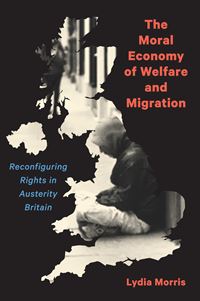The Moral Economy of Welfare and Migration: Reconfiguring Rights in Austerity Britain
This research was the outcome of a three year Major Research Fellowship funded by the Leverhulme Trust, which ran for three years from September 2016 to October 2019.
The focus of the project was Britain’s reconfigured pattern of rights in the fields of domestic welfare and migration under the Coalition government of 2010-15 and its Conservative successors. The aim was: a) to build a conceptual framework for analysing contemporary policy developments in both fields;b) to map the dominant political discourse and emergent pattern of rights and controls;c) to document critical commentary and contestation, and on this basis to consider (i) how far the reconfiguration of domestic welfare and migrant rights may be understood as the expression of a refashioned moral economy; and(ii) how far its ethical underpinnings are challenged or re-shaped by critical interventions.
Learn more about the project
Book

Recently published book: The Moral Economy of Welfare and Migration. Reconfiguring Rights in Austerity Britain, Mcgill-Queen's University Press (2021)
The research focus
At conceptual level, this research traces the idea of ‘moral economy’ from its original focus on food riots in 18th century England (Thompson, 1971), to its more contemporary application. Here the notion refers not simply to protest from ‘below’, but to a discourse that may be imposed from ‘above’ and deployed in a strategic reshaping of key features of socio-economic life. This framework was applied to analysis of key political speeches on domestic welfare and migration, and involved the translation of abstract concepts into their substantive content. So in both fields we find ‘morality’, construed as ‘fairness’ and ‘responsibility’, set against ‘dependency’ and ‘abuse’, together with a linkage between welfare and migration as ‘two sides of the same coin’, and mutually opposed in a zero-sum game.
Civic stratification and contestable margins
A further layer of research traced such discourse through to design and implementation of concrete policy measures, based on policy papers, parliamentary briefings, and third sector commentary. This material provided the basis for a mapping of the differential access to rights – or civic stratification – that has emerged, with particular attention to the boundary drawing at issue in defining target groups. The contestable margins entailed then feed directly into a final layer of research - the way in which policy across the areas of welfare, migration and asylum has been challenged.